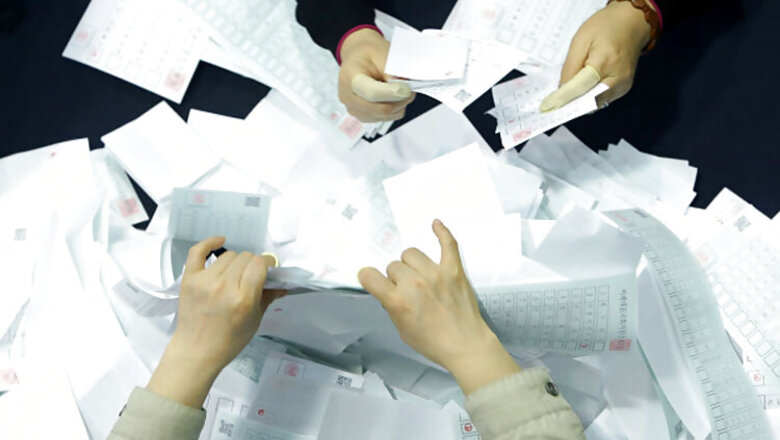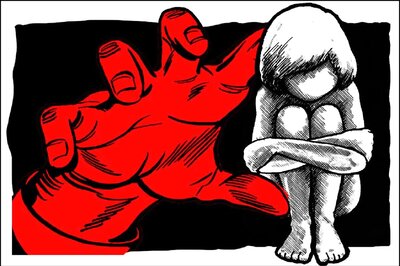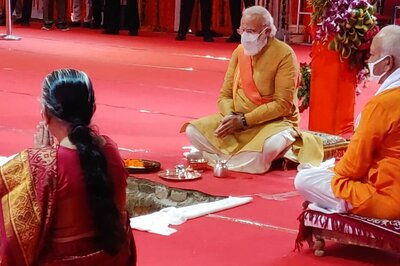
views
Seoul: South Korea's main opposition party won a surprise victory in general election, ending the the conservative ruling party's 16-year parliamentary majority.
The vote, clouded by North Korean nuclear threats and a slowing economy, dealt a blow to President Park Geun-Hye and raised hopes for an opposition victory in the 2017 presidential election.
With almost all ballots counted, Park's Saenuri Party on Wednesday won 122 seats in the 300-member National Assembly, while the main opposition Minjoo Party won 123, the most of any party.
The splinter opposition People's Party bagged 38 spots, and another six seats went to a small opposition party, the Justice Party. "The Saenuri Party humbly accepts the election results and voters' choice," party spokesman Ahn Hyung-Hwan told journalists.
"The people are deeply disappointed with us, but we've failed to read their mind," he added. It marked the first time since 1999 the conservative party has lost control of parliament, with the three opposition parties garnering a combined 167 seats, well over the majority.
Voter turnout was 58 per cent, up 3.8 percentage points from the 2012 election, and final official results were expected today morning.
"This is a voters' judgement against President Park. Many voters are fed up with her authoritarian style of administration", Professor Yang Moo-Jin of the University of North Korean Studies said.
Park has also fallen short on most of her key economic promises, a failure she puts down to legislative inaction. But critics accuse her of skewed priorities, poor decision-making and a dogmatic style of leadership.
"People punished Park for her poor performance in economy," Minjoo Party President Kim Chong-In said. Political power in South Korea is firmly concentrated in the presidency, with incumbents limited to a single five-year term.
Dissatisfaction is especially high among young people, with the jobless rate among those aged 15-29 at record levels. The left-wing opposition sought to frame Wednesday's vote as a referendum on Park's economic policies. But it has suffered from factional infighting and breakaways that threaten to split the liberal vote.
Kate Kim, an unemployed 25-year-old college graduate, said crippling levels of joblessness had persuaded her and many of her previously apathetic friends to vote. "This is the first time I have voted... our country desperately needs change, especially for young and jobless people like me," Kim said.



















Comments
0 comment